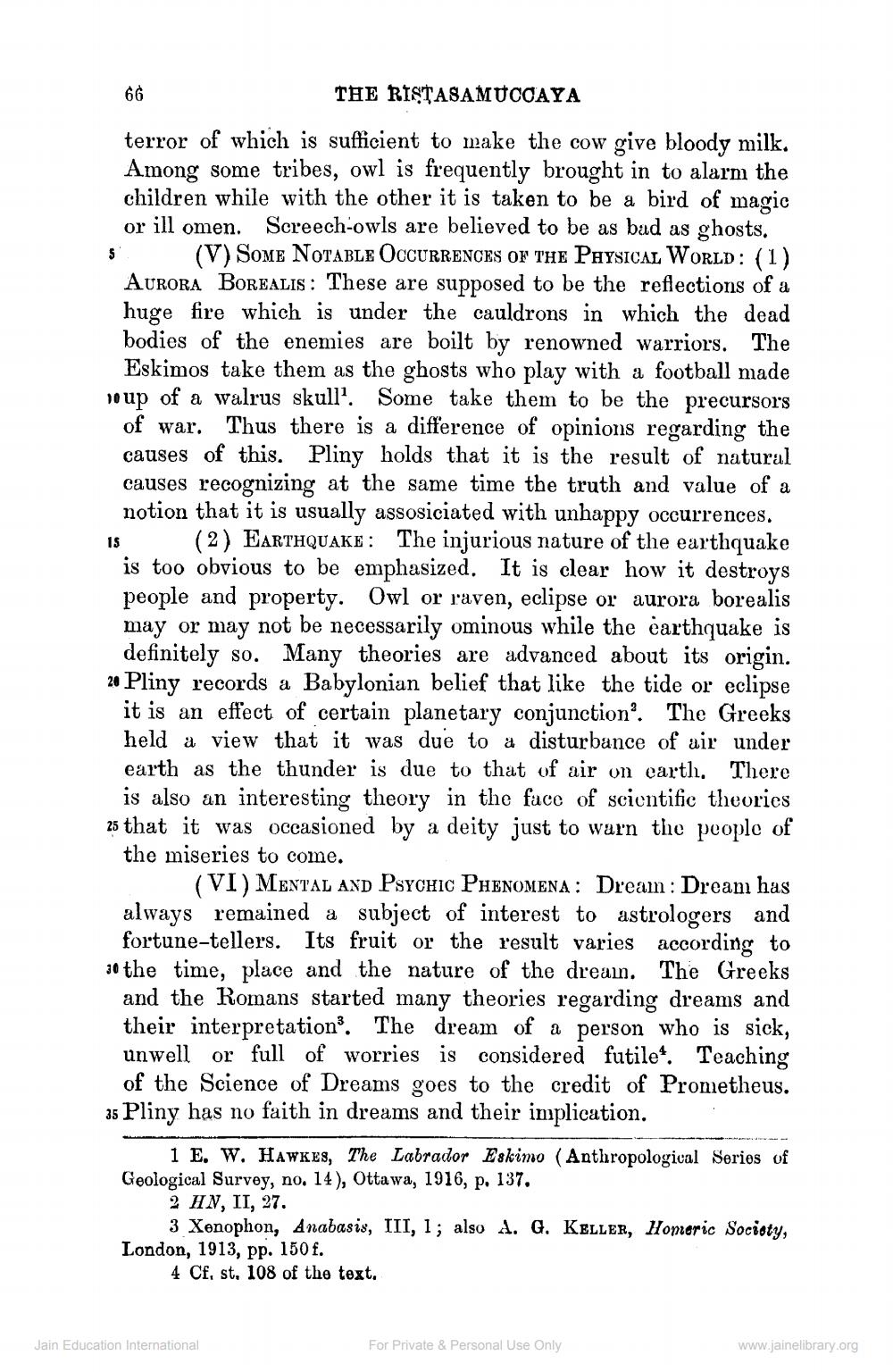________________
THE RISTASAMUCCAYA
terror of which is sufficient to make the cow give bloody milk. Among some tribes, owl is frequently brought in to alarm the children while with the other it is taken to be a bird of magic or ill omen. Screech-owls are believed to be as bad as ghosts.
5
66
15
(V) SOME NOTABLE OCCURRENCES OF THE PHYSICAL WORLD: (1) AURORA BOREALIS: These are supposed to be the reflections of a huge fire which is under the cauldrons in which the dead bodies of the enemies are boilt by renowned warriors. The Eskimos take them as the ghosts who play with a football made up of a walrus skull1. Some take them to be the precursors of war. Thus there is a difference of opinions regarding the causes of this. Pliny holds that it is the result of natural causes recognizing at the same time the truth and value of a notion that it is usually assosiciated with unhappy occurrences. (2) EARTHQUAKE: The injurious nature of the earthquake is too obvious to be emphasized. It is clear how it destroys people and property. Owl or raven, eclipse or aurora borealis may or may not be necessarily ominous while the earthquake is definitely so. Many theories are advanced about its origin. 20 Pliny records a Babylonian belief that like the tide or eclipse it is an effect of certain planetary conjunction'. The Greeks held a view that it was due to a disturbance of air under earth as the thunder is due to that of air on earth. There is also an interesting theory in the face of scientific theories 25 that it was occasioned by a deity just to warn the people of the miseries to come.
(VI) MENTAL AND PSYCHIC PHENOMENA: Dream: Dream has always remained a subject of interest to astrologers and fortune-tellers. Its fruit or the result varies according to 30 the time, place and the nature of the dream. The Greeks and the Romans started many theories regarding dreams and their interpretation3. The dream of a person who is sick, unwell or full of worries is considered futile*. Teaching of the Science of Dreams goes to the credit of Prometheus. 35 Pliny has no faith in dreams and their implication.
1 E. W. HAWKES, The Labrador Eskimo (Anthropological Series of Geological Survey, no. 14), Ottawa, 1916, p. 137.
2 HN, II, 27.
3 Xenophon, Anabasis, III, 1; also A. G. KELLER, Homeric Society, London, 1913, pp. 150 f.
4 Cf, st, 108 of the text.
Jain Education International
For Private & Personal Use Only
www.jainelibrary.org




